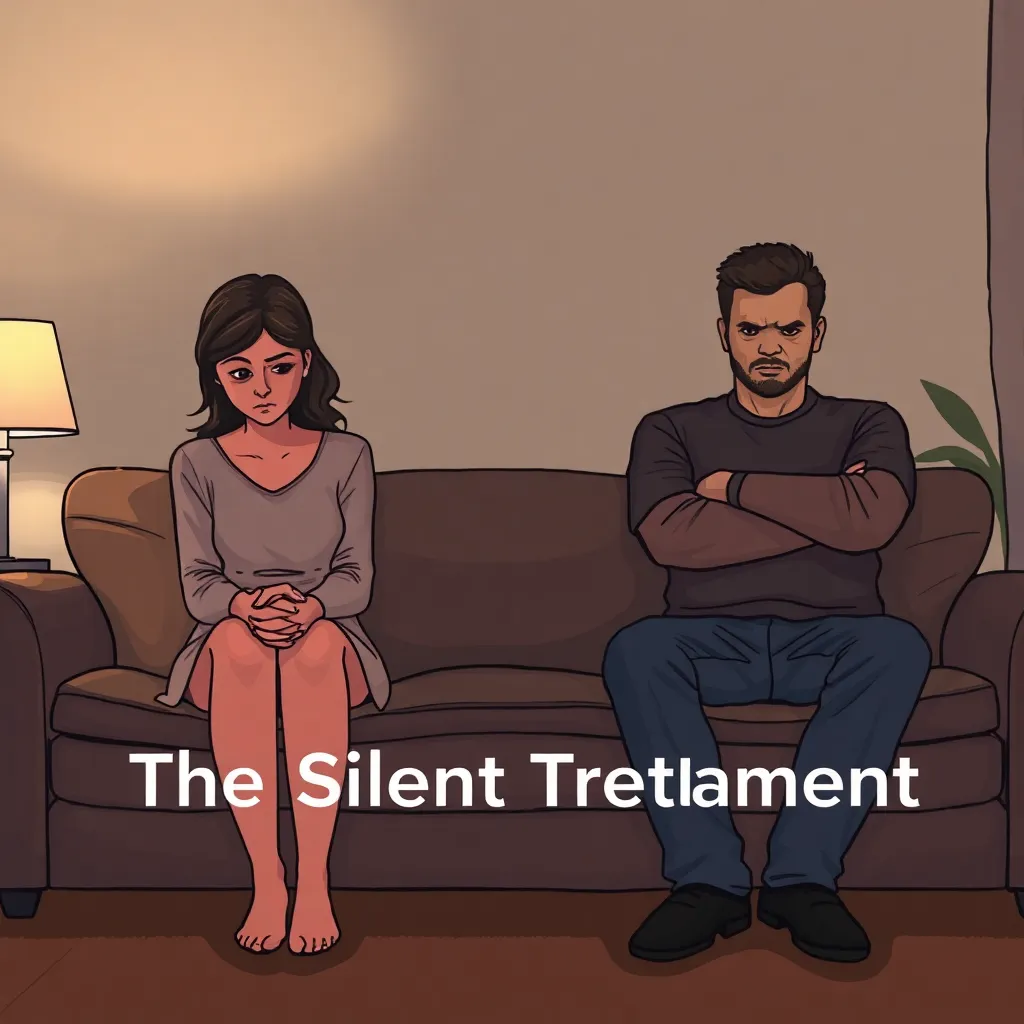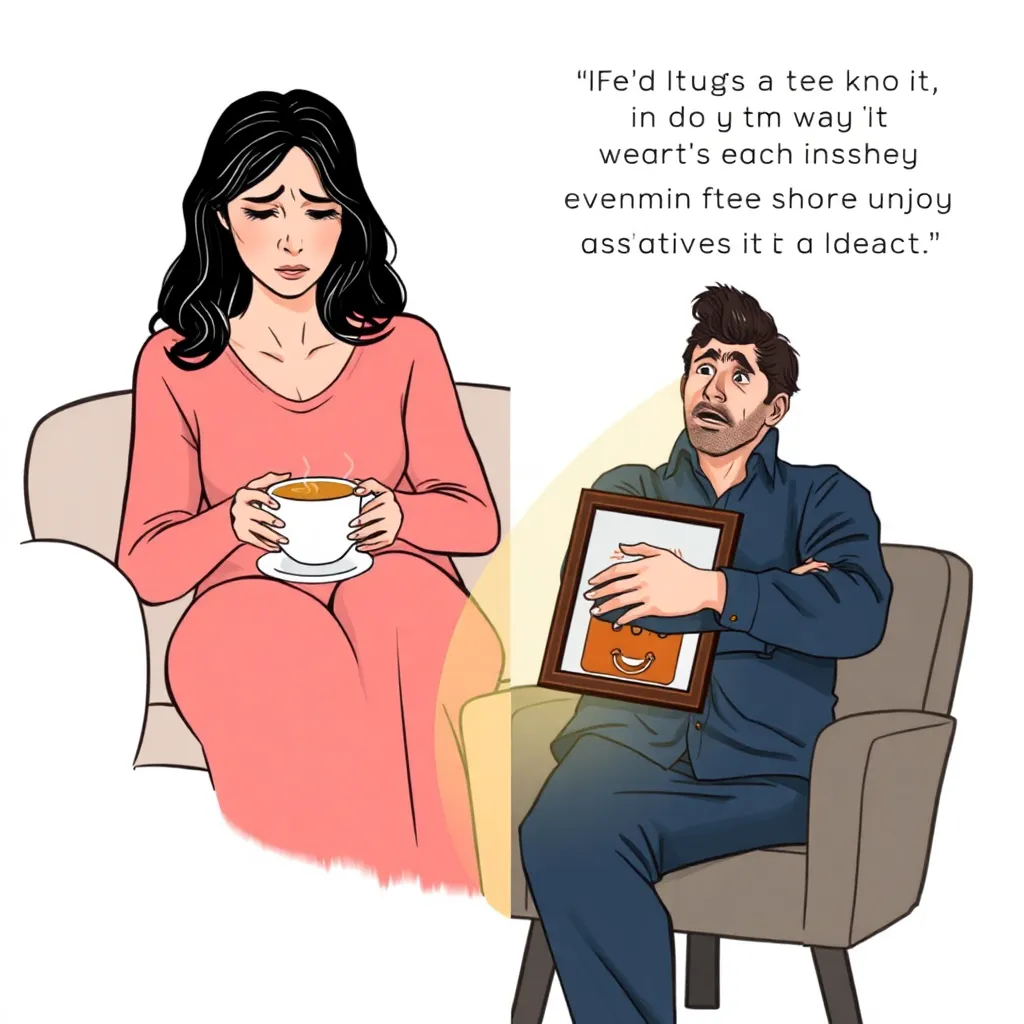Navigating relationships can be challenging, especially when you find yourself in a dynamic that feels draining and confusing. If you identify as an empath, you may be particularly susceptible to the manipulations of someone with narcissistic tendencies. Understanding the subtle ways a narcissist can influence your thoughts and emotions is crucial for preserving your mental and emotional well-being. By becoming aware of these behaviors, you can begin to reclaim your sense of self and establish healthier boundaries.
This topic is especially important because empaths often find themselves caught in a cycle of giving without receiving the same level of care in return. The imbalance can lead to feelings of inadequacy and self-doubt, emotions that narcissists can exploit to maintain control. In this article, we will explore 14 specific behaviors that narcissists use to manipulate empaths, shedding light on tactics that might have previously gone unnoticed. Armed with this knowledge, you will be better equipped to protect yourself and foster relationships that are truly supportive and nurturing.
As we delve into these behaviors, it’s important to approach this journey with compassion for yourself. Recognizing manipulation is the first step towards empowerment, allowing you to make informed decisions about your relationships. You deserve connections that honor your sensitivity and strength, and understanding these dynamics is a powerful tool in achieving that. Let’s embark on this path together, with the aim of fostering healthier, more balanced interactions in your life.
1. Recognizing Narcissistic Manipulation Tactics

In the dance of relationships, understanding how to recognize narcissistic manipulation tactics is crucial for empaths who often find themselves entwined in emotionally draining dynamics. Empaths, with their deep sensitivity and compassion, can be particularly susceptible to the subtle yet potent manipulation strategies employed by narcissists.
One common tactic is the use of gaslighting, where narcissists distort reality to make their partner doubt their own perceptions. For instance, if an empath expresses concern about frequent criticism, the narcissist might dismiss their feelings as ‘overreacting’ or ‘imagining things.’
Another manipulation technique is love bombing, characterized by excessive attention and affection at the start of a relationship. This overwhelming show of love creates a dependency, which the narcissist later exploits by withholding affection to control the empath’s emotions.
Experts suggest that recognizing these patterns early can help empaths maintain their emotional boundaries and seek healthier connections. Building awareness and understanding of these tactics empowers individuals to protect themselves from emotional exploitation.
In summary, staying informed and vigilant about narcissistic behaviors enables empaths to safeguard their emotional well-being. By learning to identify these tactics early, empaths can take proactive steps towards nurturing healthier and more fulfilling relationships.
2. Emotional Exploitation Through Guilt Trips

Narcissists often engage in emotional exploitation by using guilt trips to control their empathic partners. They might play the victim, making the empath feel responsible for their happiness or well-being. This dynamic can be seen in situations where a narcissist might say, “If you truly loved me, you’d do this for me,” leaving the empath feeling obligated to comply. Such tactics can create a cycle of guilt and compliance that erodes the empath’s self-esteem.
Empaths, with their naturally compassionate tendencies, are particularly vulnerable to these manipulations. They may find themselves constantly worrying about the narcissist’s feelings and neglecting their own emotional needs. In real-world scenarios, an empath might cancel plans with friends to avoid making the narcissist feel abandoned, even when it negatively impacts their social life. This constant prioritization of the narcissist’s emotions can lead to burnout and resentment over time.
To break free from this pattern, empaths can learn to set healthy boundaries and prioritize self-care. It’s crucial to recognize that one is not responsible for another person’s happiness or emotional state. Seeking support from a trusted friend or therapist can be invaluable in reclaiming one’s emotional autonomy. Additionally, practicing self-reflection can help empaths identify when they are being manipulated by guilt and respond assertively.
Understanding the nature of these guilt trips is the first step toward empowerment and change. By recognizing these patterns, empaths can begin to shift the power dynamic and protect their emotional well-being. Remember, a balanced relationship should involve shared responsibility for happiness, not one-sided emotional labor. Ultimately, establishing a sense of self-worth independent of others’ opinions is key to preventing emotional exploitation.
3. Gaslighting: Twisting Reality and Truth

Gaslighting is a form of manipulation where a narcissist will twist reality, making the empath doubt their own perceptions and feelings. For instance, in a relationship, the narcissist might deny having said something hurtful, causing the empath to question their memory and reality. By consistently undermining the empath’s reality, the narcissist gains control, making the empath more reliant on them for the “truth.” This tactic leaves the empath feeling confused and anxious about their own judgment.
In many relationships, gaslighting can manifest in subtle ways, such as dismissing an empath’s concerns as “overreacting” or “being too sensitive.” Over time, the empath may start to feel like they are the problem, which erodes their self-esteem. To counteract gaslighting, it’s crucial for empaths to trust their own experiences and feelings, and to seek validation from trusted friends or professionals. By reinforcing their own reality, empaths can begin to break free from the manipulative cycle.
An effective strategy for dealing with gaslighting is to keep a record of conversations or incidents, which helps maintain clarity and can serve as evidence. Expert therapists often recommend this technique as a way to empower the empath with a factual basis for their feelings and experiences. Additionally, openly communicating with partners about how their words and actions affect you can sometimes bring about change, though it requires a willingness from both parties to work on the relationship. Nevertheless, it’s important to recognize when professional help is needed to navigate these complex dynamics.
Ultimately, the key takeaway is to remain anchored in your own truth and not let the manipulative tactics of gaslighting undermine your self-worth. Building a support network and practicing self-validation are powerful tools in maintaining a healthy sense of self. By doing so, empaths can safeguard their emotional well-being and foster healthier relationship dynamics.
4. Love Bombing: Overwhelming with Affection

Narcissists often employ the tactic of love bombing, showering empaths with excessive affection and attention. This overwhelming display of love can feel intoxicating, making the empath believe they have found their perfect match.
In the early stages of a relationship, this behavior might include lavish gifts and constant declarations of love. Empaths, who thrive on deep emotional connections, may initially feel deeply appreciated and understood.
However, this intense affection is typically a strategy to create an emotional dependency. Over time, the narcissist may begin to withdraw these affections, leaving the empath confused and craving the initial attention they received.
One real-world scenario involves a partner who frequently surprises their empathic partner with extravagant dates and promises of a future together. When the love bombing phase ends, the empath might feel compelled to work harder to regain that initial level of intimacy and validation.
It’s crucial for empaths to recognize the difference between genuine affection and manipulative love bombing. This awareness can help them maintain healthy boundaries and ensure they’re in a relationship that fosters mutual respect and stability.
5. Silent Treatment: Weaponizing Withdrawal

The silent treatment is a classic manipulation tactic often used by narcissists to maintain control over empaths. By withdrawing affection and communication, the narcissist creates an environment of uncertainty and anxiety, leaving the empath to question their actions and worth.
Empaths, naturally attuned to others’ emotions, may feel a deep sense of rejection and strive to restore harmony by trying to appease the narcissist. This response reinforces the narcissist’s power, as they realize they can manipulate the empath’s actions through silence and withdrawal.
Consider a scenario where an empath partner is left wondering why their significant other has suddenly become distant after a disagreement. Instead of focusing on resolving the issue, the empath might spend days or even weeks attempting to mend the perceived rift, all while the narcissist holds the key to ending the silence.
Experts emphasize the importance of setting healthy boundaries when faced with the silent treatment. By acknowledging the behavior and refusing to be drawn into a cycle of blame and doubt, empaths can protect their emotional well-being and maintain their sense of self-worth.
Ultimately, understanding this tactic allows empaths to recognize when their genuine desire for connection is being exploited. By standing firm and asserting their needs, they can break the cycle of manipulation and foster relationships built on mutual respect and open communication.
6. Blame Shifting: Dodging Responsibility

In the intricate dance of relationships, narcissists often engage in the art of blame shifting to avoid taking responsibility for their actions. This behavior can leave empaths feeling confused and unjustly guilty, as they’re constantly made to believe they’re at fault for issues they didn’t cause.
Imagine a scenario where a partner forgets an important anniversary, yet somehow shifts the narrative to make you feel guilty for not reminding them. This cunning tactic is not just about avoiding responsibility; it’s about subtly undermining your confidence and distorting reality.
Experts suggest that empaths, due to their inherently compassionate nature, are more susceptible to such manipulative strategies. Dr. Jane Simmons, a renowned psychologist, notes that recognizing these patterns is the first step towards empowering oneself to set healthy boundaries.
To counteract blame shifting, it’s crucial to develop a clear sense of your own reality and maintain your emotional balance. Keeping a journal of events and feelings can help ground you in the truth, making it harder for a narcissist to distort your perception.
Ultimately, the key is to trust your instincts and not let blame shifting erode your self-worth. By recognizing these tactics, you can protect yourself from emotional manipulation and foster healthier, more balanced relationships.
7. Triangulation: Creating Rivalries and Jealousies

In the intricate dance of relationships, narcissists often employ triangulation to sow seeds of rivalry and jealousy among those around them. By introducing a third party into the relationship dynamics, they manipulate empaths into feeling insecure and competitive. This tactic is particularly harmful as it fuels self-doubt and can erode trust in the relationship. Empaths, who are naturally sensitive to others’ emotions, may find themselves caught in a cycle of trying to prove their worth.
Imagine a scenario where a narcissistic partner frequently mentions a “close friend” in glowing terms, subtly implying that this friend possesses qualities you lack. Over time, this can lead to feelings of inadequacy and a constant need for validation from the narcissist. Expert insights suggest that confronting these situations with clear communication is crucial. Recognize the manipulation tactic and set boundaries to protect your emotional well-being.
It can be challenging to see through the fog of triangulation when you’re emotionally invested. However, identifying this behavior can be the first step towards reclaiming your emotional autonomy. Discuss your feelings openly with your partner, focusing on how their actions impact you rather than the third party involved. This approach fosters a healthier dialogue and may reveal the narcissist’s unwillingness to engage in a truly supportive relationship.
Being aware of the triangulation tactic empowers you to make informed decisions about your relationship. By setting firm boundaries and seeking external support, you can navigate through the emotional turmoil that narcissists often create. Remember, you deserve relationships that are built on genuine love and respect, free from the games and manipulations that erode your self-esteem.
8. Projection: Accusing Others of Own Faults

Narcissists often use projection as a tool to deflect their own faults onto others, making empaths question their own reality. For instance, a narcissistic partner might accuse an empath of being selfish or insensitive, when in fact, the narcissist is the one exhibiting these behaviors.
This tactic can leave empaths feeling confused and guilty, doubting their own intentions and actions. Over time, this manipulation can erode the empath’s sense of self, making them more susceptible to further abuse.
Experts suggest that recognizing projection is the first step towards reclaiming your emotional balance. It’s essential for empaths to maintain a strong sense of self-awareness and to reflect on whether the accusations truly align with their own actions.
Empaths can protect themselves by setting clear boundaries and seeking support from trusted friends or professionals. Remember, standing firm in your truth can help deflect the misguided blame and restore your sense of clarity.
9. Devaluation: Undermining Self-Worth

Narcissists often engage in a subtle yet damaging tactic known as devaluation, where they consistently undermine an empath’s sense of self-worth. This behavior can manifest through dismissive comments or backhanded compliments that leave the empath questioning their own value.
For example, a narcissist might say, “I guess you’re pretty good at your hobby, but it’s not like it’s a real career.” Such remarks are designed to plant seeds of self-doubt in the empath, slowly eroding their confidence.
Over time, the empath might find themselves seeking constant validation from their partner, desperately trying to regain the sense of self-worth that has been chipped away. To counteract this, it’s crucial for empaths to build a strong support network outside the relationship, where they can receive genuine encouragement and affirmation.
Experts suggest practicing self-affirmation techniques, such as keeping a journal of personal successes and positive traits. This activity can help empaths rebuild their confidence independently of the narcissist’s influence and reinforce their self-perception.
Ultimately, recognizing the devaluation tactic is the first step toward reclaiming one’s self-worth and fostering healthier relational dynamics. By understanding these manipulative behaviors, empaths can begin to protect themselves and seek relationships that uplift rather than diminish.
10. Control through Conditional Approval

Narcissists often manipulate empaths by offering their approval only when it serves their interests, creating a cycle of dependency. This form of control through conditional approval can leave empaths constantly striving to meet the narcissist’s ever-changing standards, hoping for fleeting validation.
Imagine a scenario where you receive praise only when you comply with someone else’s desires, leaving you questioning your own worth when you don’t. This tactic plays into the empath’s natural inclination to please and can lead to a sacrificing of personal boundaries in pursuit of elusive approval.
To regain control, it’s crucial to recognize when approval is being used as a tool for manipulation. Setting clear boundaries and acknowledging your worth independent of external validation can help you break free from this cycle.
Experts suggest that developing a strong support network can also serve as a buffer against the emotional toll of such manipulative tactics. By surrounding yourself with people who provide genuine, unconditional support, you can begin to see through the façade of conditional approval.
11. Playing the Victim: Invoking Sympathy

In the intricate dance of manipulation, narcissists often resort to playing the victim as a means to invoke sympathy from empaths. This tactic is particularly potent because empaths are naturally inclined to offer support and understanding to those who appear to be in distress. By casting themselves as the wronged party, narcissists can cunningly deflect attention away from their own manipulative behaviors.
Consider a situation where a narcissistic partner frequently complains about feeling misunderstood or unloved. This portrayal not only garners immediate empathy but also places the empath in a position where they feel compelled to offer comfort and reassurance. As a result, the empath may find themselves locked in a cycle of trying to ‘fix’ the perceived problems, which only feeds the narcissist’s need for control.
Expert relationship therapists often highlight the importance of recognizing these victimhood tactics. Understanding that these behaviors are not genuine cries for help but rather strategic manipulations can empower empaths to set healthier boundaries. By maintaining a clear perspective, empaths can protect themselves from being drawn into a never-ending spiral of compassion fatigue.
Navigating interactions with a narcissist requires a keen awareness of their manipulative strategies. One effective approach is to maintain emotional distance and avoid getting entangled in their victim narratives. This helps empaths preserve their own emotional well-being while remaining supportive without being exploited.
Concluding this section, it’s crucial to remember that maintaining an objective stance can significantly reduce the impact of a narcissist’s manipulative tactics. By prioritizing self-care and emotional boundaries, empaths can safeguard their own well-being while still engaging with compassion and empathy.
12. Charm Offensive: Masking True Intentions

Narcissists often use a charm offensive to divert attention from their true motives, wrapping their intentions in a veil of charisma. This approach can be particularly effective with empaths, who may be naturally drawn to the allure of a seemingly warm personality. Imagine a situation where a narcissist showers you with compliments and gifts, making you feel like the center of their world. Such gestures are not rooted in genuine affection but rather in an attempt to gain control and mask their underlying selfish intentions.
When faced with a charm offensive, it’s crucial to look beyond the superficial allure and assess the consistency of the person’s actions. Experts suggest that observing how someone treats others, especially those they deem unimportant, can reveal their true character. If a partner’s charm seems to vanish when they don’t get their way, it might be a red flag. Empaths should be mindful of how easily they might be swayed by flattery, making it essential to maintain a grounded perspective.
Relationship experts advise maintaining a healthy skepticism when someone seems too good to be true. It’s important to ask yourself whether their actions match their words consistently over time. By applying this scrutiny, you can safeguard your emotional wellbeing and ensure that you’re not falling for a facade. Remember, genuine relationships are built on trust, respect, and consistency, not just charm.
Ultimately, recognizing and addressing a charm offensive allows you to reclaim your power and make informed decisions about your relationships. By understanding that not all sparkling personalities have your best interests at heart, you can protect your emotional energy from being consumed by manipulative tactics. The key takeaway is to balance your empathy with discernment, ensuring that your kindness is not exploited but appreciated.
13. Boundary Violations: Disregarding Personal Limits


Narcissists often trample over personal boundaries, seeing them as mere suggestions rather than firm limits. This disregard for boundaries can leave empaths feeling unheard and disrespected, eroding their sense of self-worth over time.
Imagine a scenario where you’ve explicitly asked for space, yet the narcissist continues to intrude, insisting on constant contact. This persistent boundary violation can be exhausting, leading to emotional burnout and frustration for the empath involved.
Experts suggest that narcissists exploit the natural empathy of their partners, pushing limits to see how much they can get away with. Recognizing this pattern is crucial for empaths, enabling them to reclaim their personal space and assert their needs firmly.
To counteract boundary violations, empaths should practice assertive communication and reinforce their limits consistently. By doing so, they can maintain a healthy sense of self and foster more balanced interactions.
14. Empowerment Strategies for Empaths

Empaths often find themselves overwhelmed by the emotional demands of a narcissist, but there are ways to regain control. By setting and maintaining firm boundaries, empaths can protect their emotional energy and well-being.
Imagine being in a situation where a friend consistently calls you at inconvenient times, expecting your full attention. It’s crucial to communicate your availability clearly and assertively, ensuring your needs are respected.
Understanding that it’s not selfish to prioritize your own emotions is vital. This mindset shift allows empaths to focus on their self-care without guilt or fear of backlash.
Experts suggest practicing mindfulness as a tool for emotional regulation. By staying grounded in the present moment, empaths can prevent themselves from getting caught up in the narcissist’s drama.
Building a support network of trusted friends or a therapist can provide valuable perspective and encouragement. These allies can remind you of your worth and help you stay anchored.
Ultimately, empowerment comes from recognizing your own value and refusing to let anyone diminish it. With these strategies, empaths can cultivate a life free from manipulation and filled with genuine, fulfilling relationships.
Conclusion: Creating Beautiful Outdoor Spaces
In exploring the ’14 Behaviors Narcissists Manipulate Empaths,’ we’ve delved into crucial dynamics such as gaslighting, love bombing, and the silent treatment, all of which are tactics used to control and undermine empaths. We’ve discussed how narcissists often exploit empathy, create dependency, and employ guilt to manipulate. By recognizing these behaviors—ranging from shifting blame to emotional withdrawal—you gain the awareness needed to protect your emotional well-being.
As an immediate next step, reflect on your relationships and pinpoint any of these patterns that may exist. Initiate open conversations with trusted friends or a therapist to foster clarity and support.
For ongoing empowerment, bookmark this article. It’s a valuable tool to revisit as you continue your journey towards healthier, more balanced relationships.
Remember, relationships rooted in mutual respect and understanding are attainable. By arming yourself with knowledge and taking proactive steps, you pave the way for a future filled with authentic connection and personal growth. Stay committed to nurturing relationships that uplift and inspire. Your path to relationship success begins with awareness and action today.
